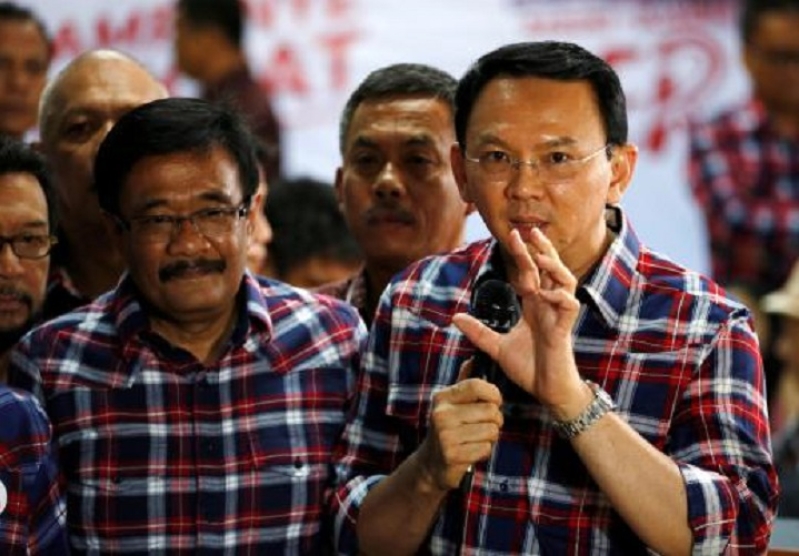
With the nearing Feb. 15 Jakarta gubernatorial polls, the world waits to see whether or not the country will pass the test for religious tolerance. And in the middle of it all stands Jakarta’s Christian governor Ahok, who says he’s just “happy” to have been placed in such position.
Indonesia, while being the world’s most populous Muslim-majority nation in the world, is also known to be tolerant of other religions. There are six religions that are officially recognized in the country, including Catholicism and Protestantism.
However, political issues that erupted last year brought to the surface existing religious and racial tensions that remained unaddressed for decades.
Gov. Ahok, or Basuki Tjahaja Purnama, rose to the position when former governor Joko Widodo vacated it after winning the presidential election. Ahok, a Christian who hails from the minority ethnic Chinese, quickly became popular as he tackled the long standing problems of Jakarta, such as flooding, infrastructure, corruption and the slums.
His office introduced an app called Qlue that residents can use to report problems as small as broken street lights to major ones like flooding, according to Sydney Morning Herald.
He literally and figuratively cleaned up the city, earning him the approval of Jakarta residents, particularly the middle class.
"What distinguishes him from others are the large scope of his success stories, and the speed with which he achieves them," Professor Ariel Heryanto at Monash University said, Sydney Morning Herald reported. "He demonstrated transparency and accountability in his work like no other public officers of his level."
However, despite his performance, Islamic hardliners had been rallying the people not to support him in the gubernatorial election because he is a non-Muslim. Islamic religious leaders taught the people that it is unlawful for Muslims to vote a non-Muslim into a position of leadership over them.
Speaking before fishers, Ahok referred to what his opponents had been saying and told the audience that they are being deceived by this philosopy. He urged them to vote according to their conscience. Unfortunately, his speech was recorded on video, and an edited version making it appear as though he was criticizing the Quran went viral on social media.
This sparked protests in Jakarta, led by Islamic Defenders Front (FPI) founder and leader Habib Rizieq, who urged police to arrest Ahok over charges of blasphemy.
Ahok has since apologized for his remarks but maintains his innocence.
He still stands trial for blasphemy even as election day draws near. If convicted, he would spend 5 years in prison even if he should win the election.
The Jakarta governor said the accusations against him are politically motivated by a group of hardliners who want to impose the Sharia law in the country.
"They want to develop another ideology here in this country," he said, according to NPR. "They want to force the implementation of Islamic law in this country. That means they want to dig up our present foundation and build another one. How come?"
Early this year, concerns were raised regarding photos that FPI uploaded to its website. The photos showed some members of the group receiving military training, which the Indonesian Army claimed was part of a ‘Defend the State’ bootcamp.
Fears that some military personnel are helping to train FPI members led to the removal of the local military commander in Lebak, according to ABC.
The upcoming gubernatorial polls and Ahok’s blasphemy trial are being considered as Indonesia’s “litmus test” for religious tolerance. Yet Ahok doesn’t mind being in the middle of it all.
"I'm happy that history chose me for this position," he said. "You couldn't buy it."






